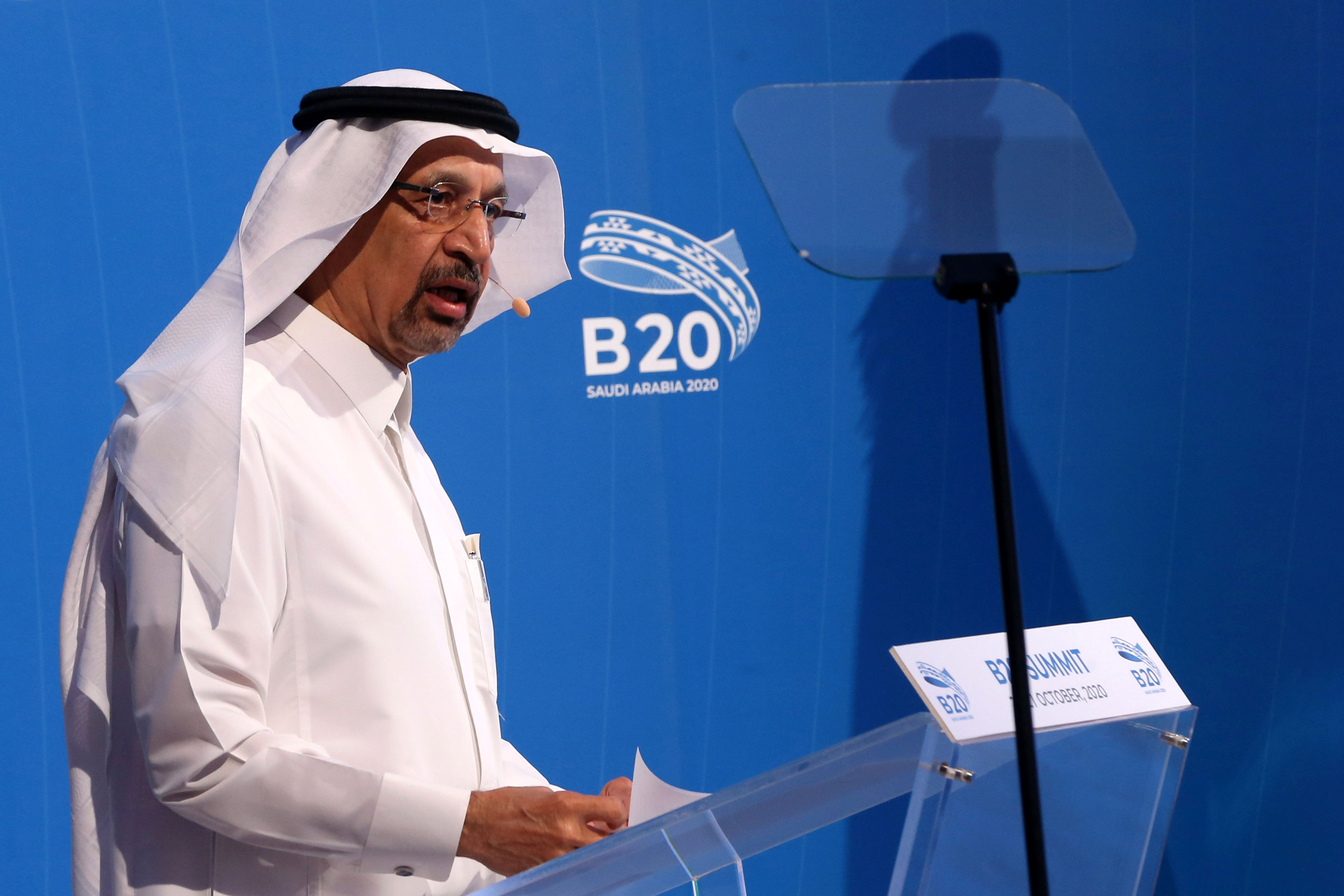Saudi Arabia’s Nuclear Programme: International Implications

Plans and Aims
Saudi Arabia has no nuclear power plants, but aims to develop total nuclear power capacity of 17 GW by 2040. It is focused on completing a research reactor and selecting a partner for its first power plant, which will have a planned capacity of 2.9 GW. Nuclear energy is intended to reduce the country’s demand for oil, allowing more oil exports (the main source of Saudi budget revenue). Of total production of 11.8 million barrels per day, 3.8 mbpd is consumed domestically, making Saudi Arabia the fourth-biggest oil consumer in the world. Around 40% of electricity in Saudi Arabia is produced from oil.
The new power capacities are also needed to support Saudi Arabia’s population growth: it is estimated that the Kingdom will grow from 34 million people today to around 40 million by 2030. That means higher energy demand by households and the need for additional capacity for energy-intensive desalination stations. It is estimated that Saudi Arabia will need around 130 GW of power-generation capacities by 2030, up from the current 80 GW.
Nuclear energy will also help with the development of renewable energy sources (RES), in which generation depends on weather conditions, and ensuring a stable supply of energy regardless. The significance of both kinds of energy sources for Saudi Arabia is emphasised in the King Abdullah City for Atomic and Renewable Energy—a royal entity established in 2010 and tasked with the development of RES and nuclear energy. They would diversify the Kingdom’s energy sector away from reliance on hydrocarbons and reduce Saudi Arabia’s CO2 emissions—it is the ninth-largest emitter in the world.
The development of the nuclear industry is also aimed at boosting economic growth and creating jobs, including for qualified specialists. Saudi Arabia wants to produce 25–30% of the nuclear equipment it uses in the country and hire locals.
International Dimension
Saudi Arabia aims to develop its domestic capabilities across the whole nuclear industry chain, and Saudi leaders suggest building national uranium enrichment facilities. That would create the technical possibility to acquire not only uranium for civil use but also highly enriched, weapons-grade uranium. Developing capabilities yielding such uranium (much less constructing a nuclear weapon) would be a long-term challenge. Saudi Arabia is a signatory of the Treaty on the Non-Proliferation of Nuclear Weapons (NPT), but its de facto ruler, Mohammed bin Salman, has stated that if Iran acquires a nuclear weapon, Saudi Arabia will follow. In an extreme case, the Saudis could also acquire nuclear warheads from Pakistan (which is not a signatory of the NPT), and Saudi Arabia’s cooperation with China on ballistic missiles is another controversy. Chinese specialists were working in Saudi Arabia to identify uranium reserves (in September, it was reported that Saudi Arabia might have significant uranium ore reserves) and the China National Nuclear Corporation is among the companies from five countries selected by the Kingdom as potential partners for the nuclear power plant construction. The other entities are from the U.S., Russia, South Korea, and France. Furthermore, Argentinean INVAP is currently finishing the construction of Saudi Arabia’s research reactor where Saudi specialists will be trained.
The development of the Saudi nuclear programme in line with international legal regimes (including importing nuclear fuel for the research reactor) will require broader cooperation with the International Atomic Energy Agency (IAEA), which sets the rules. The IAEA is a UN body tasked with, among other things, verifying whether NPT signatories who do not have nuclear weapons are respecting the treaty. The recent intensification of talks between Saudi Arabia and the IAEA are a positive sign of this cooperation, but do not address all the issues. Saudi Arabia is under the Small Quantities Protocol (SQP), intended for countries that have insignificant quantities of nuclear material, for example, for medical use, and as such, it is exempted from the standard IAEA obligations on safeguards and inspections. That should change if it has more nuclear material stock. Furthermore, the protocol was concluded in the pre-2005 version, which is now outdated and limits IAEA control role even more than updated versions.
The lack of NPT safeguards is strongly criticised, especially by the U.S. The US Atomic Energy Act of 1954 bans nuclear cooperation with non-nuclear weapon states without such safeguards. The United Arab Emirates, which was the first Arab country to build a nuclear power plant, reached an agreement with the U.S. before the investment, renouncing uranium enrichment, reprocessing spent nuclear fuel (another way of getting fissile material for a nuclear weapon), etc. Regardless of Saudi Arabia’s commitment to NPT, its biggest regional rival, Iran, might view the Saudis’ nuclear ambitions as a potential threat—or at least an excuse—for more confrontational policy. Israel, the closest ally of the U.S. in the region, is also concerned about Saudi Arabia’s intentions. Although never formally confirmed, Israel almost certainly has its own nuclear weapons and it wants to reduce the chance any other country in the region can acquire one.
Even if Saudi Arabia ensures transparency in its nuclear programme, the competition for the investment is another issue (the Kingdom plans to issue the tender this year). The U.S. is averse to Russian and Chinese influence in such a strategic sector anywhere in the world. The Americans would be likewise opposed to their involvement in Saudi Arabia, a strategic U.S. security partner. At the same time, Saudi Arabia might perceive nuclear investment as a chance to at least partly limit its dependence on the U.S., even more so as it comes in for criticism by Congress for human-rights violations and other issues. President-elect Joe Biden has also criticized Saudi Arabia in recent years (e.g., for the murder of Jamal Khashoggi or bombing civilians in Yemen), and it is assumed that once in office, the issue of human rights might become even more important in U.S.-Saudi relations.
Saudi Arabia’s cooperation with China or Russia avoids such issues. On the other hand, these countries cannot replace the U.S. as a security partner and, contrary to the U.S., they do not support Saudi Arabia in its rivalry with Iran. Saudi cooperation with China is rather meant to limit the dependence on the U.S. in some areas and/or pressure the Americans to restrain their criticism of Saudi Arabia. At the same time, cooperation with China in some areas might be very important from the Saudi perspective (e.g., uranium exploration, ballistic missiles).
Conclusions and Perspectives
Saudi Arabia’s nuclear programme is associated with many challenges and much controversy, and a diplomatic effort can smooth over only some of that. The European Commission and EU Member States should emphasise the need to ensure the highest IAEA standards. The best solution would be to conclude an Additional Protocol allowing IAEA on-site inspections across the country’s whole nuclear production chain. That would reduce the risk of proliferation and make it impossible for Iran to cite Saudi Arabia as an excuse to refuse cooperation with the Agency. A lack of pressure on Saudi Arabia would undermine the credibility of the parties to the Iran nuclear deal (JCPOA). Regardless of this, it cannot be ruled out that Iran takes a tough stance even if Saudi Arabia’s nuclear programme conforms to the NPT regime.
Poland is a signatory of the NPT but also the Additional Protocol, therefore it meets all the safeguard requirements. Poland should consider supporting other European countries, the U.S. and the IAEA in pressuring Saudi Arabia to meet the Agency safeguards as well. It is also in Poland’s interest for Saudi Arabia to cooperate in such strategic sectors as nuclear energy only with democratic countries, such as the U.S., France, and South Korea. The controversy around the Saudi nuclear programme, which fuels tensions with Iran, are unfavourable from the Polish perspective as it could make it harder for the U.S. to go back to the JCPOA talks and, on the other hand, could draw attention of Poland’s allies to the Persian Gulf.


